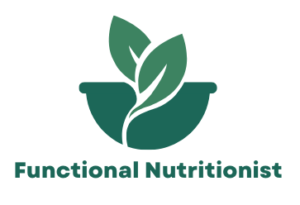Education and Certifications for Aspiring Nutritionists in Arizona
Those looking to live a healthier lifestyle in Arizona call a professional like a functional nutritionist. Whether you’ve stood in the middle of the cereal aisle debating whole grains versus granola, rest assured you’re not alone. Nutrition is much more than food labels and calories; it is learning the human body’s complicated dance with what you put in it-and how one might become an expert in choreographing that dance.

Education will be your first pit stop to a career in nutrition within Arizona. You cannot simply waltz into a career in nutrition by virtue of an affinity for kale salads. Students wade arms deep into the science of nutrition requirements. Remember, this is your building block.
So, get that degree. Theory meets practice with a registered dietitian credential. Why would everybody and his cousin want this? Because it opens doors wider than a double fridge. To get this credential, think of it like a multistep dance. You’ll want to make sure you complete an accredited internship-usually lasting from 6-12 months-that lets you mix in some practical experience with your academic prowess. After that jaunt, you’ll take-and hopefully ace-the RD exam.
But what if your focus leans more toward the holistic side of nutrition? Welcome to the world of the functional nutritionist. This specialty goes beyond basic dietary fixes and limits, taking into consideration stress, lifestyle, and even genetics, to create personalized modes toward health. Other people move on to get other certifications such as the Certified Nutrition Specialist. Such a certification gives you more oomph in your expertise, enabling you to tap into a more holistic view of health.
With its expanses and vibrant colors, Arizona has got more than its fair share of opportunities whereby budding nutritionists can get a chance for hands-on experience. One may consider those programs that marry academia with fieldwork on either Navajo reservations or low-income communities. The students get boots-on-the-ground experiences and, at the same time, leave a mark on local communities-what would be like hitting two birds with one stone, except here; we talk about people, not feathered critters.
The organizations grant learning resources, mentorship, and plenty of networking opportunities. After all, what is not to like in a mixer where one gets to debate the virtues of quinoa versus farro over a plate of hummus?
Continuing education becomes your secret sauce once you are elbow-deep in the industry. The master’s degree or other advanced certification keeps you on top of the wave concerning knowledge and gives leverage in specialized areas such as sports nutrition, pediatric nutrition, or even geriatric nutrition. Keep your knowledge updated with fresh research, seminars, and workshops, and, for sure, you will be a powerhouse of knowledge.
Sometimes, one might easily feel like Dorothy on the yellow brick road, being all hazy about how one can become a nutritionist in Arizona: the various choices, certification, and mistakes-it all piles up. But remember, for every nutritionist, someone was once a fresher looking at the mysterious metabolism.
Core Competencies for Health and Wellness in Arizona
Being a functional nutritionist in Arizona means enabling Arizonans about their journey toward health, rather than understanding what citizens need in their daily diet. It takes a dash of knowledge, some artistry, and a pinch of empathy. Let’s jazz up this discussion by digging into what every entry-level nutritionist in this region needs to perfect.
First on the list is stellar communication. A functional nutritionist caters to individuals who could well be juggling family, work, and personal health perplexities. Making complex information digestible-easy, pun intended-is key. Visualize setting forth the benefits of omega-3 as if you were describing magic from your grandma’s chicken soup. Connecting on many different levels creates trust and allows for an enriched client experience.
Arizona offers a wide array of living conditions and a number of different culinary influences; these add a sprinkle of diversity into its lifestyle. An understanding of biochemical and physiological pathways is knowing what tools to select out of the toolbox. Imagine a mechanic who does not just fix cars but builds them up into competition machines. That would be you, except that those engines are human bodies. Every experienced nutritionist should know how nutrients dance in the body. It’s like being a maestro, conducting an orchestra into a symphony of health.
I wouldn’t underestimate cultural competency in a melting pot like Arizona-from Phoenix on down to Tucson. The State of Arizona is swarming with history and diverse backgrounds. You would be at a potluck and everybody brings one thing from their heritage. You wouldn’t want to tell Aunt Maria that her tamales are no good, okay? So, one needs to respect and understand a culture in their foods and eating practices.
Of course, problem-solving ability cannot go unmentioned. From the waves of heat that sweep across the desert to finding ways to lighten up hearty Sonoran dishes, problem-solving abilities will always be important. It is like playing chess, and every move should count in achieving positive dietary changes. You will always have to expect barriers-standing up and trying to jump over cacti while doing your marathon. The game here is to find real-life, practical solutions for the people.
Ever tried to get somebody to give up their favorite burger for a quinoa salad? Motivational techniques will help in gentle yet firm nudging along the path of health. Visualize sowing seeds in the desert and watching them bloom as healthy habits trickle into their lifestyle piece by piece.
Then comes adaptability. Nutritional science is a field in which the pieces never stop changing-new challenges, new discoveries. If it is yoga in Sedona or hiking in the Grand Canyon, remaining current with emerging trends and recommendations offers fresh and timely advice. Of course, practical cooking skills will be essential in your practice. You cannot preach broccoli and not practice it-that is just sheer hypocrisy! Showing, not merely telling, how to make delicious and healthy meals will go a long way toward resonating with your clients. Just visualize yourself as an Arizona food magician, conjuring up those meals that nurture and please your taste buds.
Interwoven, as in DNA, the research skills are among all the other skills. Not everything that glitters is gold regarding digital literacy and the flood of information. Sifting through studies to decipher genuine, evidence-backed insights is a key objective. A keen eye for credible resources will moor you in truth and prevent you from wandering into the sea of misinformation.








